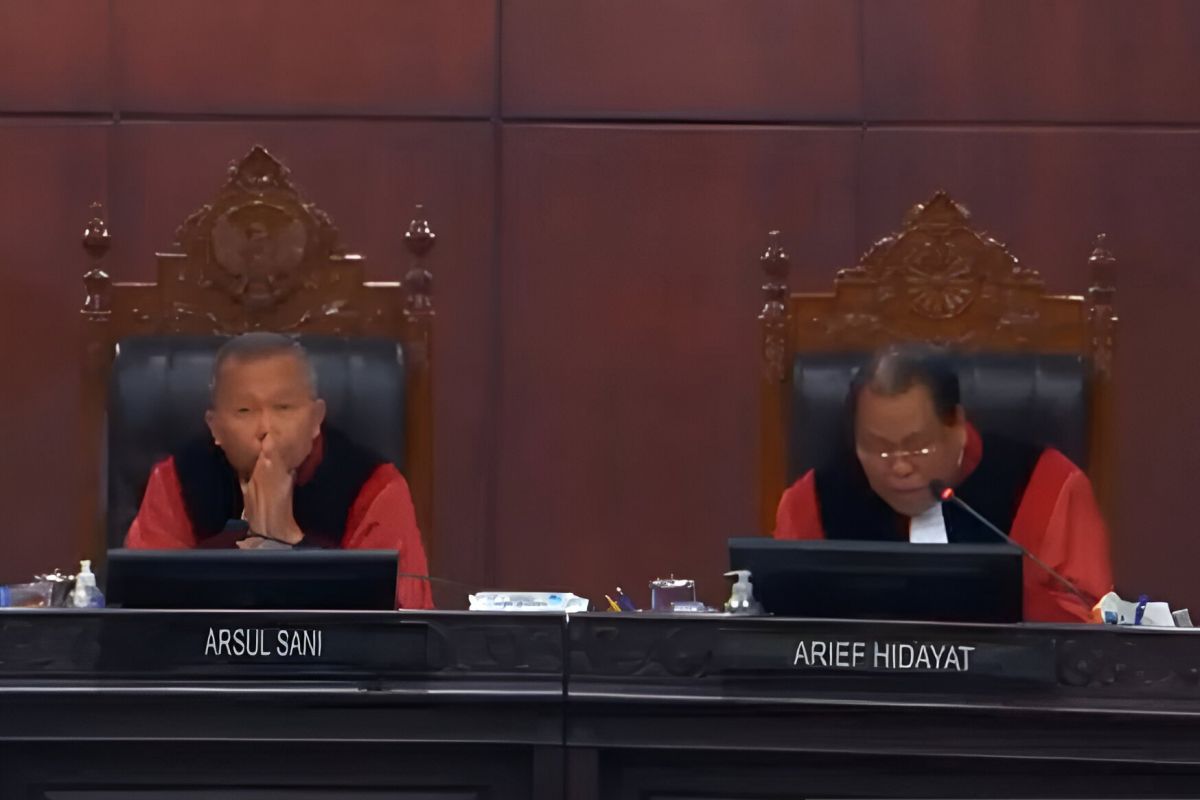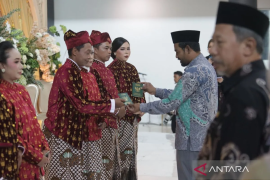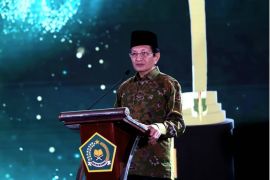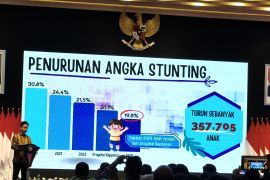It emphasized that a marriage not based on religious principles and rules would not be considered valid by the state.
"Religion and belief in God Almighty are indispensable elements for a valid marriage," said Constitutional Justice Arief Hidayat while reading the considerations of Decision Number 146/PUU-XXII/2024 in the plenary courtroom of the Constitutional Court in Jakarta on Friday.
The ruling emerged from a case filed by two citizens, Raymond Kamil and Teguh Sugiharto, who do not adhere to any particular religion or belief.
They questioned Article 2, paragraph (1) of the Marriage Law, which stipulates that a marriage is valid only if conducted according to the laws of the relevant religion and belief.
Raymond and Teguh argued that the article restricted their ability to form a legal family as the provisions do not accommodate citizens who choose not to embrace any religion or belief in God Almighty.
In response, the court clarified that being religious and believing in God is necessary, reflecting the nation's character and the principle of the Almighty God, as mandated by the Pancasila and the 1945 Constitution of the Republic of Indonesia.
Thus, the absence of provisions for citizens to choose not to be religious or believe in the Almighty God is a proportional limitation and not a form of discrimination, it added.
Therefore, it declared that Article 2, paragraph (1) of Law Number 1 of 1974 concerning Marriage (Marriage Law) does not conflict with the Constitution.
Article 1 of the law also specifies that marriage aims to form a family in a happy and eternal household based on the Almighty God.
"Given the absence of provisions for Indonesian citizens to choose not to adhere to a religion or belief in the Almighty God, the legal norm that validates marriages conducted according to each person's religion and belief does not constitute discriminatory treatment," Hidayat said.
Furthermore, as marriage is part of a form of worship and expression of religion or belief in God Almighty, it can be categorized as an external forum where the state can help determine the procedures and requirements.
With Article 2, paragraph (1) of the Marriage Law, the state submits marriage to religion and belief in God Almighty, as the requirements for a valid marriage are determined by the laws of each religion and belief.
Based on these considerations, the Constitutional Court rejected Raymond and Teguh's petition. "Given these legal considerations, the petitioners' argument regarding the unconstitutionality of Article 2, paragraph (1) of the Marriage Law is legally groundless," Hidayat said.
In the same case, Raymond and Teguh also contested the new Criminal Code Law, but the Constitutional Court declared their petition unacceptable. Additionally, they challenged the Human Rights Law, the Population Administration Law, and the National Education System Law, but their petitions were rejected in their entirety.
Related news: Govt does not encourage underage marriage: official
Related news: MK's decision dispels uncertainty on interfaith marriage issue
Translator: Aditya Eko Sigit Wicaksono
Editor: Rahmad Nasution
Copyright © ANTARA 2025












